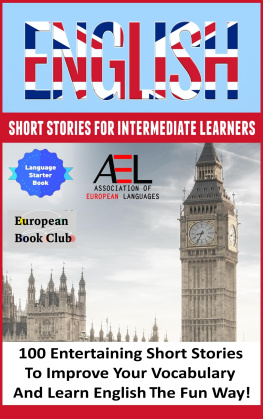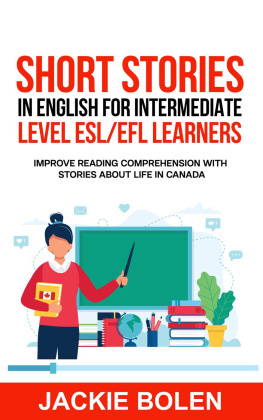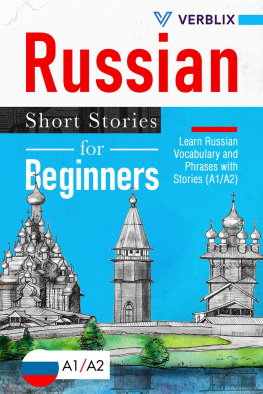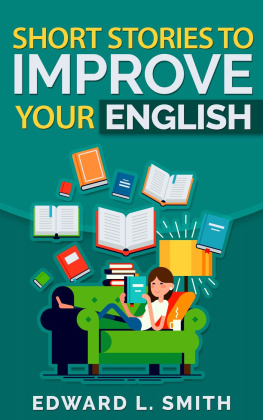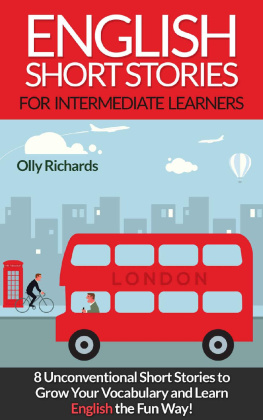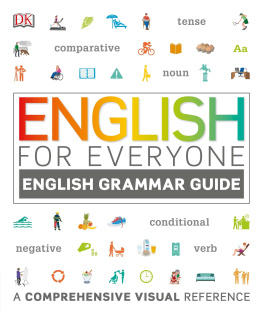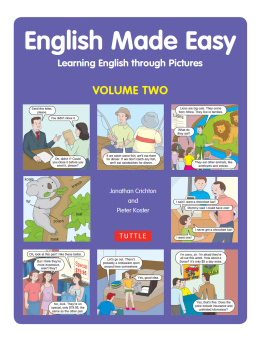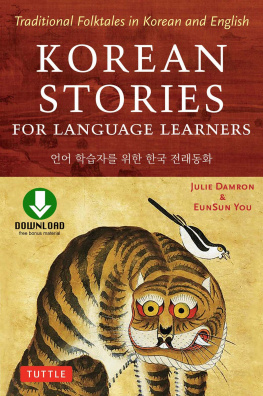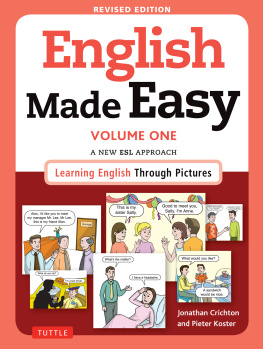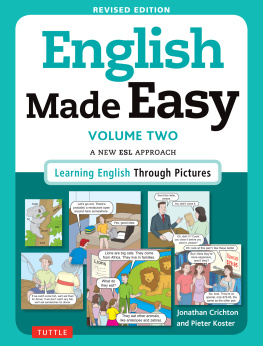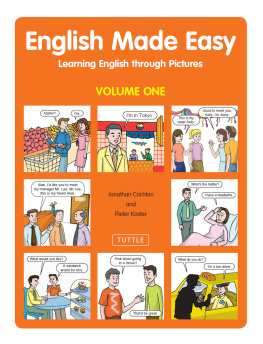This is a work of fiction. Names, characters, places, and incidents either are the product of the authors imagination or are used fictitiously. Any resemblance to actual persons, living or dead, events, or locales is entirely coincidental.
All rights reserved. No part of this book may be reproduced in any form on by an electronic or mechanical means, including information storage and retrieval systems, without permission in writing from the publisher, except by a reviewer who may quote brief passages in a review.
Why You Must Read
Why do I need to read in English?
My students often ask me this. They think, I go to classes, I do my homework, I watch films in English. Why should I read books?
Theyre wrong. In fact, reading is the best way to improve your English. Let me tell you why.
First, reading skills are more important than ever. Thats true for English as well as your native language. This is true for everyone, from office workers to mechanics.
Second, reading is the best way to improve all of your English. Reading will improve your speaking, writing, vocabulary and grammar better than any other method. It wont improve your listening skills, but it will improve your vocabulary. And when you have a better vocabulary, you can listen more easily, and improve your listening skills that way.
Were not talking about any kind of reading, though. In school, you probably read lots of English. Boring textbooks and stories with exercises at the end.
No, were not talking about that. Were talking about reading for pleasure.
That means reading a book you enjoy because you enjoy it. Not because your teacher told you to read it. Not because its what good students read. No questions, no exercises. Just reading for pleasure.
Youre probably thinking, Thats too good to be true.
Let me show you.
In 1965, an experiment was carried out in juvenile delinquent reform centres in America. One group of the students got free books. They were exciting books for young boys, such as James Bond. Normally, in experiments like this, they have lots of rules. Students have to read a book a week, and they have to do exercises. But in this experiment, they didnt have to do anything. They just gave them the books, and the boys could do what they wanted. They could throw the books away, give them back, or draw on the pages.
But the boys did read them. They read a lot of them. Some of them read a book every two days.
At the end of two years, they tested the students. Their reading and writing improved a lot, and so did their attitude towards school. But the students who did not do the experiment stayed the same. In fact, some of them got worse over the two years.
This isnt just for native speakers.
By the end of the first year, the two reading methods were winning. Students who did those methods were 15 months ahead in their English ability. Students who did the traditional method were only 6.5 months ahead. They did the same experiment in Singapore, and found that the students who did sustained silent reading did the best in grammar tests. But they hadnt had any grammar classes! The students who did only grammar classes did worse than the students who only read!
When we do grammar exercises, we try to remember all the rules of the language. When we read, we absorb them.
But I know what youre thinking: When I pick up a book in English, its too hard for me! I get bored of looking up words, and I give up after a few minutes.
Thats why I wrote this book. Hopefully, it will make you fall in love with reading, by providing fun, familiar stories that are easy to understand.
The stories get harder and longer as they go, so you can feel like youre improving as you read. Most of the stories first came out on my podcast, as well as one that I wrote myself.
Again, I know what youre thinking: Fairy tales? But those are for kids! I need useful vocabulary, about business and science and technology. Theres no way to make that fun!
Actually, there isnt such a big difference between Important Language and Fun Language topics as well as chatting with our friends.
A study found that, if a student read a million words of science fiction, they would learn many of the technical words needed for a science degree.
So yes, reading fairy tales will help all of your English, even academic English. As an English teacher, Ive seen many times that the students who do the best are those who read the most. For IELTS, for university, for business or just for travel, the students who read do the best.
But I understand if you still dont believe me. When I learned about all this, I found it hard to believe, too. But I like to try new things, and I love learning languages.
So in 2017, I decided to test these ideas. I had wanted to learn Spanish for a long time, but I had tried traditional methods and not learned very much. I made a goal: I would read a million words in Spanish and see what my level was afterwards. A million words is about twenty novels, so it was a lot of work.
I started with very easy reading, like transcripts for learners. After I had learned some basic things, I started reading translations of books that I knew in English. For example, I have read Harry Potter and Game of Thrones in English, so I read them in Spanish, too.
Finally, I was ready to read completely new books. I fell in love with Latin American authors such as Isabel Allende, Luis Jorge Borges and Manuel Puig. With the reading, I also listened to podcasts, but I always read the transcripts and counted the words as part of my reading.
After I achieved my goal, I tested myself by writing and talking to native speakers, and found I was at an intermediate level. I could understand almost everything I read, understand clear speech, and have conversations at a comfortable level. And I had spent most my time reading, not speaking!
In one year I learned more than most students learn in five years.
I didnt try to remember the vocabulary and grammar rules. I absorbed them.
By now, youre either thinking, I dont believe this! or youre ready to start reading for hours a day.
But the next thing Im going to say is extremely important: you must read books that are easy. You must read books that are fun. If a book is too difficult or too boring, put it down and find another one.
Stephen Krashen, an expert in second language acquisition
You should read books so easy that, when you see a word you dont know, you can understand the meaning from context.
98%? Thats so high!
I know, dear reader. But let me show you an example. Heres a text where Ive replaced 10% of the words with nonsense words. So you should understand 90% of the words.
Jerry FLURGED out of bed and opened the curtains. He BIMPED to himself as he made breakfast. He poured coffee and put butter on his POFFER. His phone rang, and he picked it up. He was so shocked by who was TORNGLING that he dropped his VINKY on the floor.
Is that easy to understand? Could you read a whole book of that?
Heres the same text, but with 2% nonsense words. So you should understand 98% of the words:
Jerry jumped out of bed and opened the curtains. He sang to himself as he made breakfast. He poured coffee and put butter on his toast. His phone rang, and he picked it up. He was so shocked by who was calling that he dropped his VINKY on the floor.



